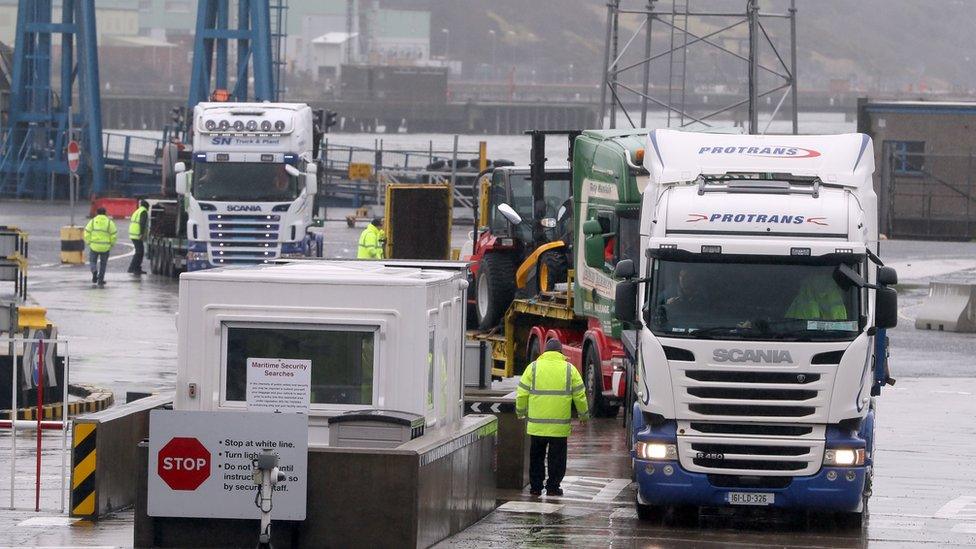Brexit deal: How could Labour change things for Northern Ireland?
- Published
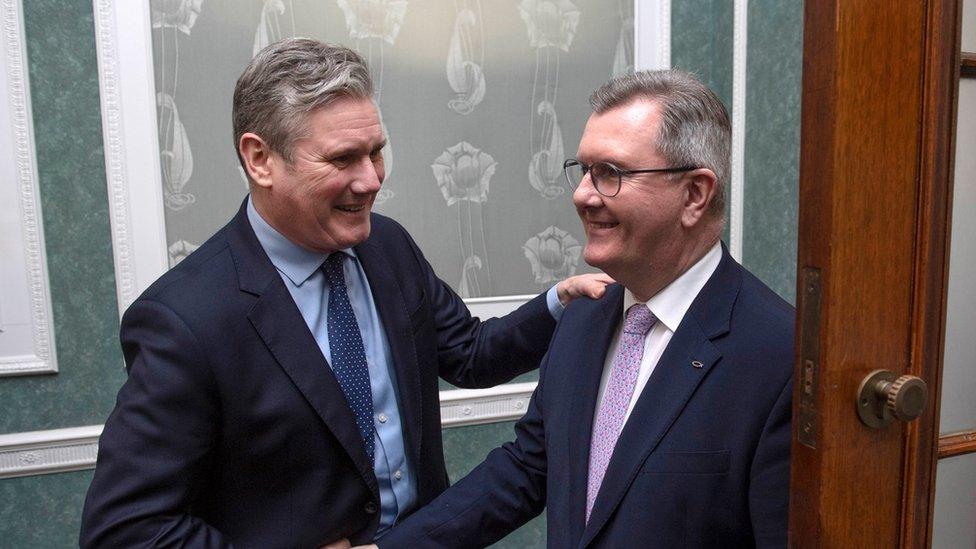
Could Labour find a third way for Northern Ireland's Brexit deal?
The Democratic Unionist Party (DUP) leader said he has had "interesting discussions" with Sir Keir Starmer about Labour's plans to change the UK's Brexit deal.
Sir Jeffrey Donaldson said Labour's ideas would help "ease many of the difficulties moving goods" from Great Britain to Northern Ireland.
The Brexit deal for Northern Ireland means some checks on on goods from Great Britain. This is sometimes referred to as the Irish Sea border.
But what ideas might Labour be looking at when it comes to Northern Ireland?
What has Labour said?
In July 2022, Sir Keir made a speech, external which he described as "a plan to make Brexit work" if Labour was to form a government.
He said he would seek a new veterinary agreement for agri-products between the UK and EU.
This sort of deal could ease the checks and controls on food products being traded between both Great Britain and the EU and between Great Britain and Northern Ireland.
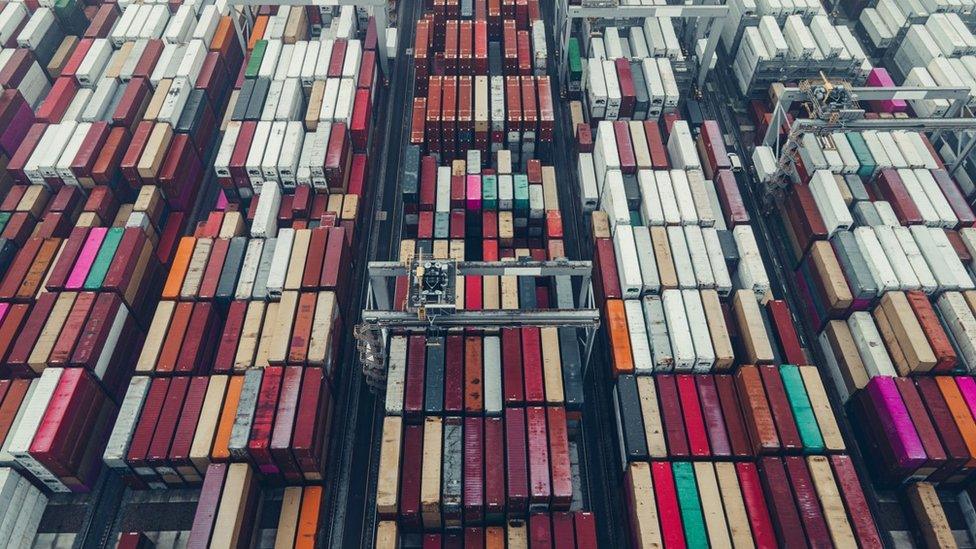
A new deal could further reduce those controls on goods entering Northern Ireland
The Windsor Framework means that compared to the original Brexit deal, controls on food products entering Northern Ireland from Great Britain have already been reduced but not eliminated.
A new deal could further reduce those controls, though that would depend on the sort of deal Sir Keir Starmer is looking for.
What could be on offer from the EU?
Agrifood deals from the EU fall into two broad categories: New Zealand-style or Swiss-style.
These were discussed extensively during the Brexit process.
The EU's deal with New Zealand means that each party recognises that the other has high food standards and so the frequency of checks on products and paperwork is much reduced.
However, New Zealand continues to set its own standards.
That means that when its products enter the EU they still require a significant piece of administration known as an Export Health Certificate (EHC) and a proportion of goods are still checked at border control posts.
So that sort of deal might further reduce the impact of the Irish Sea border but would certainly not eliminate it.
What about a Swiss-style deal?
Since 2009, there have been no regulatory border controls for trade in agrifood products between Switzerland and the EU.
If the same applied in trade between the UK and EU it would have a significant impact on the sea border, sweeping away requirements for most checks and paperwork.
But the Swiss only have this deal because they agreed to follow EU rules almost to the letter, without much say in setting those rules.
Switzerland, external is obliged to modify its laws in response to changes in EU legislation, what is known as dynamic alignment.
The EU has previously said this deal would be on offer to the UK but the current government has rejected dynamic alignment as a fundamental issue of principle.
What has Sir Keir Starmer said?
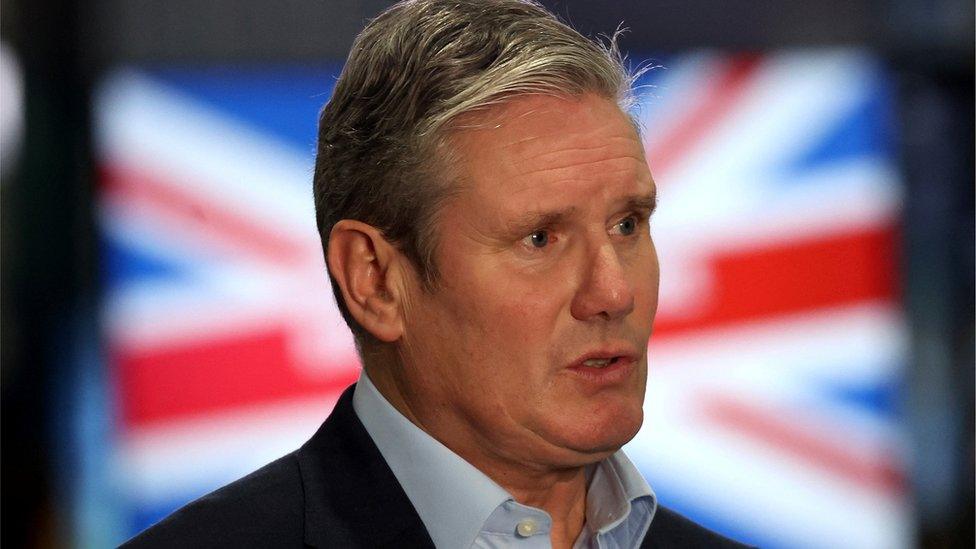
'I'm not interested in a deal that puts the UK in a position of being a rule taker' - Sir Keir Starmer
Last week the BBC asked him about the prospects of Swiss-style agrifood deal.
He said: "I'm not interested in a deal that puts the UK in a position of being a rule taker.
"Our rules must be made in Westminster, according to the national interest of the UK as a whole."
That seems to rule out such a deal, but it may be that Labour would attempt the difficult task of trying to find a third way between the New Zealand and Switzerland.
- Published1 October 2023
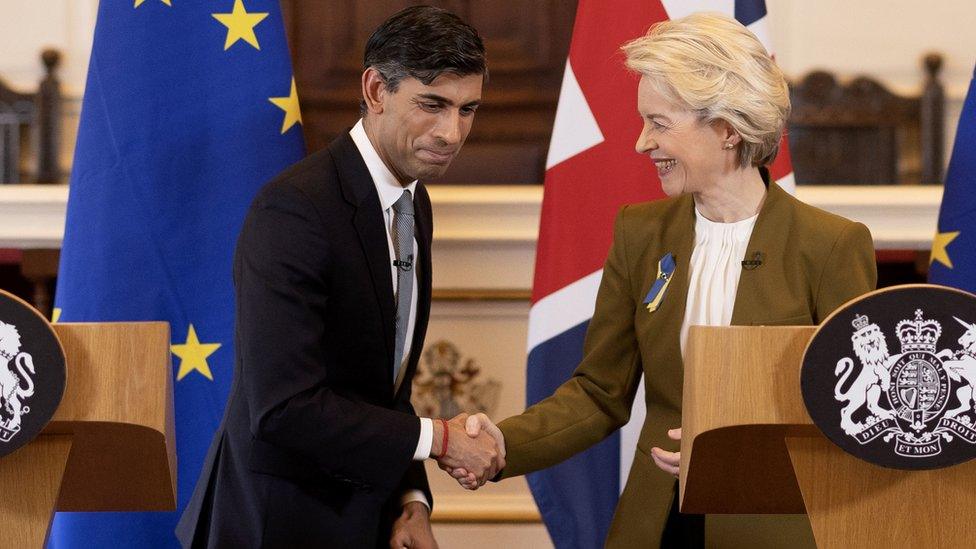
- Published21 April 2021
